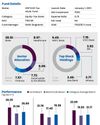
You can’t escape the long queue of people with each one of them waiting to ask a dozen questions to the man at the counter. No matter how hard it is, you have to fill up the small boxes using the best of your calligraphic skills on those rectangular pieces of paper if you want to square your deal. You can’t say no to a formal, official letter in black and white if you need to authorize someone to fill it in for you. And, lastly, you must practice your signature a hundred times if you want your cheque to be processed at one go.
That’s the bank pre-millennial Indians have seen and grown up with. All this was normal for them, all the sulking and cursing stowed in. As the pandemic split the world into two, many pre-Covid practices began transforming into their post-Covid neo-normal avatars. That made the beginning of a bull run for the digital-only banks.
The brick-and-mortar banks had been running the risk of losing customers with time mismatches and manpower issues adding to a rise in customer discontent. “It became important for banks to ascend with the next wave in banking, which scales the entire bank down to the size of an iPad, tablet or smartphone, and promises the convenience of having an entire bank on our fingertips,” says a study by Infosys. That is the world of digital-only banking.
A neo-bank or a digital-only bank operates exclusively online, using the internet and cloud computing. The pandemic-induced restrictions on mobility and social distancing fostered the growth of these neo-banks and their future is sealed with the digital disruption transforming our lives completely.
This story is from the August 2021 edition of Outlook Money.
Start your 7-day Magzter GOLD free trial to access thousands of curated premium stories, and 9,000+ magazines and newspapers.
Already a subscriber ? Sign In
This story is from the August 2021 edition of Outlook Money.
Start your 7-day Magzter GOLD free trial to access thousands of curated premium stories, and 9,000+ magazines and newspapers.
Already a subscriber? Sign In

HOW TO BEAT CURRENCY EXCHANGE RATE WOES
If you are travelling abroad, you will have to change your Indian rupees into either dollars or euro or to the local currency. Here's how to choose the right currency for a seamless holiday experience abroad

Why A New Year Goal Is Good
Setting a new year goal can give you a psychological boost to improve yourself and help you set aims and targets while also helping you declutter and let go of the past

SENIOR CITIZEN HOUSING: THE HURDLES TO CROSS
Buying a home is not only a dream of youngsters, many retirees also want to buy a home, but for that, they have to overcome adverse situations and many challenges

Axing Taxes And Beating Benchmarks
When investing for the long term and that too in a product with a lock-in period, the decision between the best and the consistent performer becomes critical.

Use Gold To Optimise Portfolio
Returns from gold are expected to be decent going forward, but more importantly, it acts as a portfolio diversifier and helps reduce volatility

The Risks That Invoice Discounting Entails
Invoice discounting can give potential high returns over a short period of time, but lack of regulation make them a high-risk investment

2024: CHANGES THAT MATTER
The year 2024 has been a game-changer for the Indian regulatory landscape, with the Securities and Exchange Board of India (Sebi), Insurance Regulatory and Development Authority of India (Irdai), the Reserve Bank of India (RBI), the Pension Fund Regulatory Development Authority (PFRDA) and the Income Tax Department proposing key changes that will benefit investors, policyholders, pensioners, taxpayers and consumers alike. We give you a lowdown on five key changes proposed by each of these regulators

10 Stock Picks For 2025
Top analysts recommends 2 stocks each and the reasons why they should be a part of your portfolio

VOLATILITY AHEAD: PLAY SAFE
After an exhilarating rally till September 2024, the Indian stock market finds itself in turbulent waters and is expected to continue to do so in 2025. We give you some stock picking strategies that will help you play safe. We also have a list of 10 stocks recommended by experts which you can consider for your portfolio

Stay Ahead Of AI-Powered Cyber Fraud
AI has become an integral part of our lives, right from customer service at banks to insurance claims. But it has now become a powerful arsenal for the fraudsters too who are increasingly using AI to scam individuals and corporations alike to commit fraud. The key is to stay vigilant